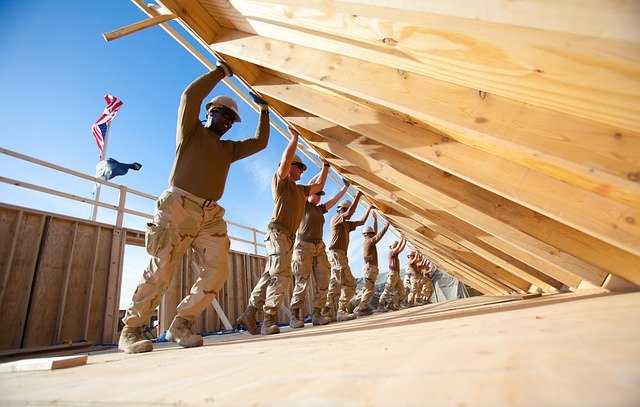Even a rise in interest rates cannot slow Arizona’s red-hot housing market.
“The modest uptick in mortgage rates over the last several months reflects declining recession fears and a more sanguine outlook for the global economy,” says Sam Khater, chief economist for Freddie Mac. “Due to the improved economic outlook, purchase mortgage applications rose 15 percent over the same period a year ago, the second-highest weekly increase in the last two years. Given the important role residential real estate plays in the economy, the steady improvement of the housing market is a reassuring sign that the economy is on solid ground heading into 2020.”
That renewed confidence in the economy has most Arizona experts bullish on Arizona’s residential housing market.
Here’s how strong the Phoenix housing market looks
2020 commercial real estate outlook: Here’s how Phoenix shapes up
“The Arizona housing market stumbled late last year, with rising mortgage interest rates and lower confidence levels,” says Jim Belfiore, founder and president of Belfiore Real Estate Consulting. “Demand levels remain down year over year at the moment, but the delta between last year and this year has narrowed to its lowest level over the last few weeks. We expect demand to surge in the second half of 2020 and in the spring of 2021, with the only concern on the horizon being Arizona’s — and the country’s — ability to attract more workers into the labor market to fill newly created jobs.”
But one demographic the residential real estate sector cannot depend on to drive demand in the near future is Millennials. According to Apartment List’s 2019 Millennials & Homeownership Report, 11 percent of Millennial renters in Metro Phoenix expect to rent forever. Of those who expect to purchase a home, 58 percent have not yet started saving towards a down payment. At current savings rates, just 18 percent of Phoenix’s Millennial renters will be ready to put down 10 percent on a median-priced starter home in the next five years.
While Millennials have been blamed for destroying a wide array of industries — from tuna to doorbells — their seeming lack of interest in buying homes cannot dim the industry’s optimism as we embark on 2020. Here’s what some Arizona real estate experts expect to see in 2020:
Impact of technology on housing market
Clint Fouts, president and CEO, West USA Realty: “2020 will be a year of similar growth and inventory to 2019. Practitioners must remain focused on the consumer’s experience and perception of our services amidst tech firms’ attempts to attack and diminish the Realtor’s role and value proposition. In addition, consumers are now aware of the iBuyer services and resulting net proceeds. The iBuyers will continue to attract sellers within the existing portion of the market caused by normal default rates, corporate relocation, and sellers who need to sell within a specific time period. Consumers are opting for the traditional real estate listing represented by a Realtor over the significantly discounted net proceeds realized when using the iBuyer services.”
Michelle Schwartz, senior vice president and county manager, Old Republic Title: “2020 will bring rapid changes in how real estate closings are transacted. I see it becoming faster-paced due to the e-closing and remote notary processes that are on the immediate horizon.”
Jim Lyon, chairman, Russ Lyon | Sotheby’s International Realty: “The industry has become so focused on technology and computer-generated service through the Internet, that real estate transactions are impersonal and automated. This year, our focus is going to be taking real estate back the basics of conversations, one on one experiences, and personal relationships, yet maximizing the most up-to-date technology to provide exceptional service for our clients.”
Matt Widdows, CEO and founder, HomeSmart: “The real estate industry is going through a lot of change. Traditionally, everyone has always said that, but this time it’s for real. There is a ton of consolidation – the way things used to be done just isn’t good enough anymore. Much of this is technology driven, but much of it is human driven with consumers wanting more information, more control over processes and more choices. Technology is making this easier for the human to achieve, thereby changing entire industries and business models.”
Impact of labor shortage
Lindsay A. Cullum-Colwell, managing principal, Cullum Homes: “The residential construction industry will grow at a steady pace in 2020. Thanks to a shortage of skilled labor in a majority of the construction trades, the market is not being overbuilt.”
Mike Godbehere, president, GCON Custom Homes: “We have had strategic growth, hitting our 2020 goals three years early. For our industry to continue this success, we need workers in the trades and need to get the word out that there are quality jobs with great benefits that don’t always need college degrees.”
Multifamily market
Chapin Bell, president and CEO, PB Bell: “We continue to believe in the strength of the apartment market in the Phoenix metropolitan area. Our market continues to benefit from the job growth, population growth and household formation growth in Phoenix. Demographic trends and homebuilding trends also continue to help keep the wind in our sails. We are seeing some softness in some sub-markets, where there has been a large amount of new inventory brought to the market. Even though there is some areas of softness, we believe this is short lived as this new inventory is being absorbed … Projections continue to put Phoenix as one of the top rent growth markets in the country. One area of concern which will have an impact on the amount of new inventory added to the market, is the increase in construction costs. This will slow down the inventory growth as it will be harder to get the new deals to pencil.”
Laura Ortiz, president, Evergreen Devco: “The commercial real estate industry continues to evolve, but is strong in our markets. For companies like Evergreen, who innovate and are creative and flexible, there are opportunities for new developments and redevelopments. Evergreen’s multifamily work will also continue to grow steadily. I am very optimistic heading into 2020.”
Alana Mann, president and owner, Statesman Group of Companies: “The costs of construction and staffing — especially in senior living — is rapidly inflating. So, I am going to continue to diversify my portfolio and explore innovative ways to help the mature resident delay the foreseeable lifestyle of expensive assisted care by preserving their independence without compromising social connectivity.”
Impact of strong economy
Bruce E. Beverly, CEO, Great American Title Agency: “Phoenix is becoming a top destination, especially for people living in high cost areas like Los Angeles, San Francisco and Seattle. Phoenix’s more reasonably priced housing, lower cost of living, available workforce and stable climate forecasts a growing economy and stronger housing growth in 2020, provided interest rates don’t rise too quickly.”
Daniel Boylan, president, DLB Custom Homes: “Our industry often echoes the current economy and geopolitical climate. Our clients are strong, successful, sophisticated, and savvy individuals that make buying decisions when these factors are favorably aligned. With a backlog of projects through 2021, we are optimistic that 2020 will be another great year.”
David M. Kitnick, founder and president, Rosewood Homes: “Metro Phoenix was hurt badly during the housing and economic meltdown in the latter part of the 2000s, which led to a delayed and muted housing recovery. However, job growth has been vigorous for the past few years while single-family building permit activity has been relatively modest. We believe that all of this bodes well for 2020 and beyond.”
Don Murphy, division president, Shea Homes: “I expect more of the same in 2020 with a very solid housing market with moderate growth and moderate price appreciation. There might be a slight pause in the market in 2020 or 2021, but our market did not experience the tremendous run-up in pricing that others did so I wouldn’t expect a precipitous fall either.”




